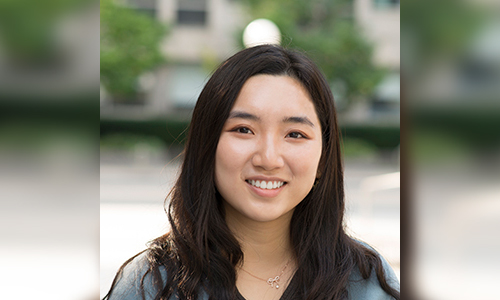Atta Chang awarded 2023 Cecil Yip Award

Originally by Anika Hazra
The Donnelly Centre for Cellular and Biomolecular Research recognizes outstanding new graduate students each year with the Cecil Yip Doctoral Research Award. Recipients of the award represent the innovative and collaborative spirit of the Donnelly Centre, upholding the Centre’s principle of working across disciplines to solving the biggest challenges in human biology. The recipients of the 2023 Cecil Yip Doctoral Research Award are Cheuk Yan Chan, Ali Fathi, Jacob Fine, David Li, Olivia (Xiang) Li, Mackenzie Moore, Chloe Reno and Olivia Taverniti.
The award provides financial support to first-year doctoral-stream students. It was established by the family of the late Cecil Yip, who was former Vice-Dean of Research in the Faculty of Medicine and a co-founder of the Donnelly Centre.
“On behalf of the Yip Doctoral Award committee, I congratulate this year’s recipients,” said Christopher Yip, Dean of the Faculty of Applied Science and Engineering, chair of the Cecil Yip Doctoral Research Award selection committee and son of Cecil Yip. “While it’s still early in their graduate careers, these students have already shown impressive promise and progress in their research programs. I have no doubt that they will make significant contributions to their respective labs and will certainly inspire the next generation of interdisciplinary researchers in medicine and health.”
Improving Nanoparticle Treatment of Tumours Through Simulation
Atta Chang is conducting research under the supervision of Warren Chan, distinguished professor of nanobioengineering. Chang plans to investigate how nanoparticles interact with their tumour microenvironments. The retention of nanoparticles in tumours remains a challenge in the field of cancer nanomedicine; Chang will address this challenge by building a mathematical model to simulate nanoparticle retention based on where nanoparticles are distributed within tumours and how they interact with the tumour. The goal is for this model is to help identify the factors that have the greatest impact on nanoparticle retention in tumours. Chang hopes her findings will help improve nanoparticle design for targeted cancer treatment.